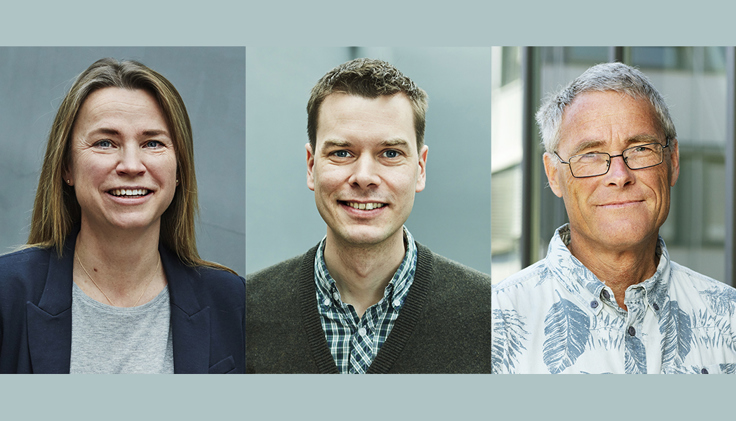40 million NOK from the Research Council of Norway
News
|Published
The research Council of Norway has granted three new projects to the Centre for Fertility and Health.
This news article is older than 30 days and the information may be outdated
Go to the home page- We're really exited to get started on these projects which are at the core of the Centre research themes, says Centre Director Per Magnus. It is very rewarding that we once again have been successful in a tough competition for research funding. There were also good applications that did not receive support in this round and we are preparing new grant applications for the deadline in February.
Three new projects
Sickness in the Family
The project Sickness in the Family: A Register Study on the Short- and Long-Term Effects of Severe Sickness on Family Members obtained 12 mill NOK from the programme Welfare, working life and migration.
- The goal of the project is to gain more knowledge about how children's lives are affected - in terms of health and in other ways - by serious illness in the parents, and vice versa, says Øystein Kravdal. Our focus will be on young families, where the offspring are particularly dependent on the parents. To document the extent to which severe sickness contributes to inequality and reduced social mobility, the project will use rich register data linked with large longitudinal studies.
Kravdal is the project manager and he will work in close collaboration with Jonathan Wörn, Bjørn-Atle Reme and Jonas Kinge. Other researchers at the Norwegian Institute of Public Health will also be active in the project, togheter with collaborators from Norway, Germany, Italy and USA.
Transitions in the education system
The project Lost in transition? Uncovering social and health consequences of sub-optimal transitions in the education system also received 12 mill NOK from the funding scheme for independent projects (FRIPRO).
- We will study the long-term consequences of problematic transitions in the educational system for family formation, labour force participation, and health. The background is that more often than in previous generations, children who struggle in school tend to participate less than their peers in social institutions when they grow up. They are less likely to enter a partnership and have children, participate less in labour market activities, and frequently end up with worse physical and mental health than others, says Martin Flatø.
Camilla Stoltenberg is project manager with support from Martin Flatø at CeFH, and the project is a collaboration with NIFU, the Frisch Center and the University of Bristol.
Women's fertility
The project Women's fertility – an essential component of health and well-being was funded by the Research Council of Norway's call for Collaborative Prokject to meet Societal and Industry-related Challenges. The project received 16 mill NOK.
- In this project we will examine women with different reproductive potential. We aim to characterize their ovarian and hormonal status, and by linking existing data collected for young women and their mothers in a large birth cohort, to understand why some women have poorer chances of becoming pregnant. In addition, we will use Norwegian health registries to describe health consequences of reduced fertility. The results from this study would help guide policy, says Siri Håberg.
Siri Håberg is the project manager and will lead the project in close collaboration with the partners Liv Bente Romundstad at Spiren Fertility Clinic and Hans Ivar Hanevik at the Fertility Clinic South at Telemark Hospital. Several other researchers from CEFH as well as international collaborators from USA and UK will work in this project.


